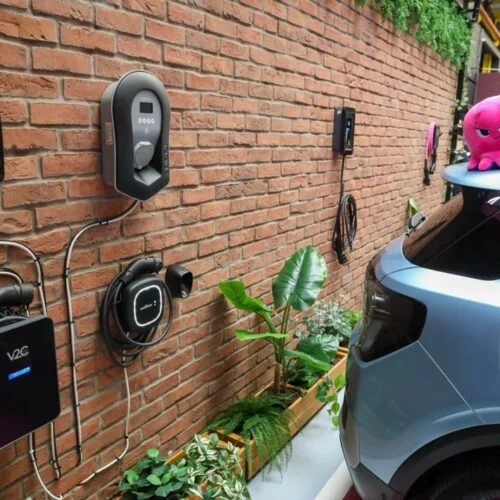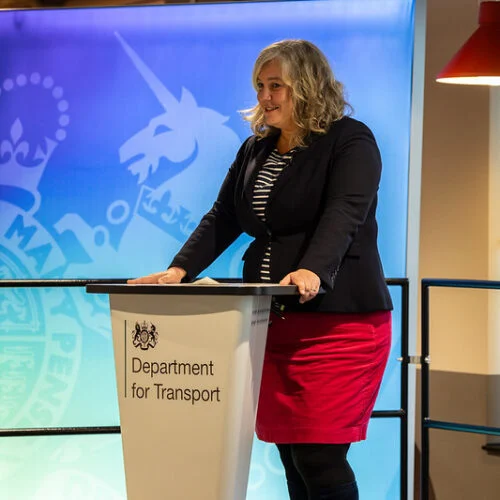The UK government has removed a cumbersome requirement for drivers to submit planning applications to install an EV chargepoint at home or a business site.
The Department for Transport announced yesterday (29 May) that it hopes cutting this red tape will help drivers save, on average, up to £1,100.
Future of Roads Minister Lilian Greenwood, who has held the role since July 2024, said the shift in planning was part of the government’s broader efforts to make the adoption of EVs “easier, cheaper and better.”
Accessibility to charging infrastructure has often been discussed as one of the main barriers to the adoption of EVs in the UK and across the globe, with “range anxiety” having become a primary deterrent.
InstaVolt CEO Delvin Lane said: “Anything that helps remove barriers to EV adoption and gives all drivers confidence in the infrastructure – helping remove range anxiety – is a strong move in the right direction.”
These fears are gradually becoming subdued in the UK, and these new planning measures will further negate this.
The new planning measures will boost EV adoption among homeowners with access to a driveway or other off-street parking, roughly 60% of the UK. They will also cater to drivers with only off-street parking by making destination chargers easier to install at strategic locations, such as workplaces or areas with amenities like shopping centres.
For John Lewis, CEO of EV chargepoint provider char.gy, the change marks “a clear signal of policy certainty in the UK’s EV sector, exactly what investors and charge point operators need to unlock the scale of investment required to build a world-class public charging network”.
Despite the inclusion of measures to support off-street charging via public charging, Vicky Edmonds, CEO of trade association EVA England, has argued that more needs to be done to support drivers without driveways.
“To ensure EVs can work for everyone, further action is needed. Drivers without driveways still face significant barriers to affordable, convenient charging,” Edmonds said.
“We urge the government to increase its support of the rollout of cross-pavement charging and extend legal rights to tenants and leaseholders, so all drivers can access and benefit from cheaper and more convenient charging.”
It should also be noted that the government already offers discounts to support drivers renting or owning a flat with only access to on-street charging. With government grants, drivers could secure up to £350 towards installing a chargepoint at the property.
You can find out more about eligibility and how to apply here.
UK nears 80,000 EV chargepoints as April sees ‘one pop up every 29 minutes’
Perhaps more importantly, by removing the planning barriers to installing an EV charger, the government has created a potential catalyst to help the UK achieve its 2030 target of having 300,000 public EV chargers in operation across the country. For reference, the UK is closing in on the 80,000 EV charger milestone, having reached 79,000 at the start of the month.
In addition, statistics released by the Department for Transport found that nearly 3,000 public charging devices were added in April alone, with one popping up every 29 minutes.
However, it has been noted that there are significant regional disparities in the locations of public EV chargepoints, with a report by the Public Accounts Committee (PAC) stating that 43% of public chargepoints are currently located in London and the South East of England.
Additionally, the PAC’s report found that only 80 of the UK’s 114 motorway service stations currently host at least six ultra-rapid EV chargers, despite the Department for Transport setting a target for all service stations to meet this standard by 2023.
Matt Davies, director of Octopus Energy’s charging network platform Octopus Electroverse, recently questioned the methodology used to track EV chargepoint deployment in the UK, which could be counted at over 100,000 in a blog exclusive to Current±.
Delivering efficient and reliable charging experiences has become paramount to maintaining adoption rates. To explore this topic further, Current± will host ‘Delivering a reliable EV charging customer experience in the face of growing demand,’ a free webinar sponsored by global automation and network technology company Techniche, at 11:00AM (BST) on 12 June 2025.






